Pay for the duck say Brazilians
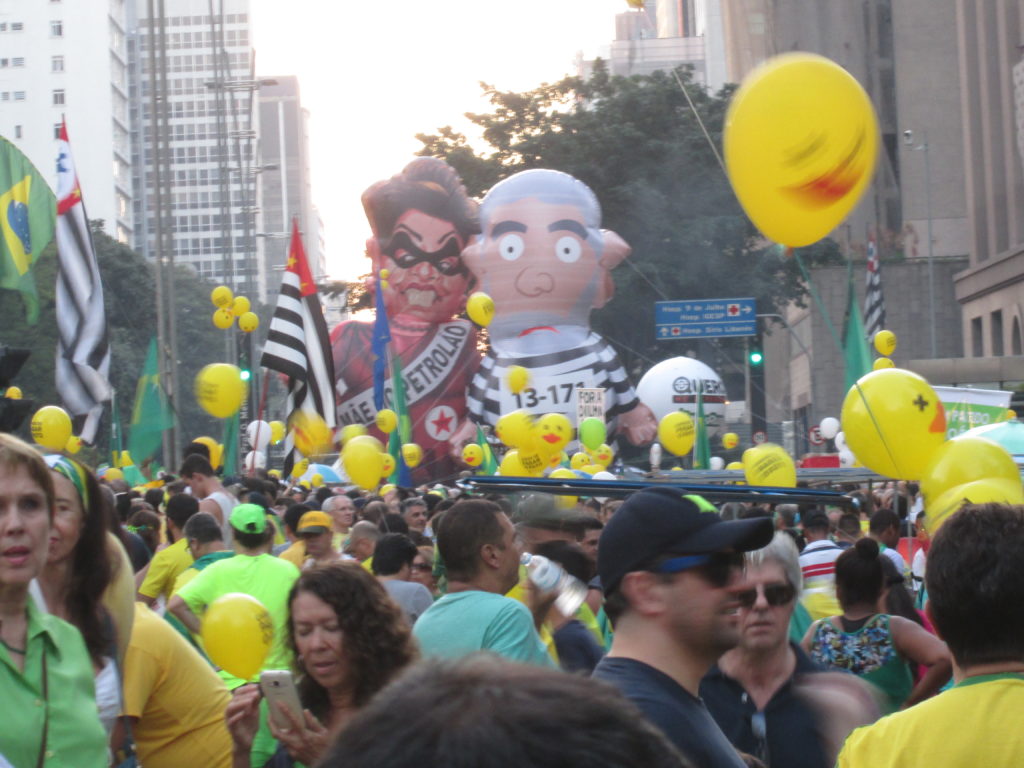
17 April 2016 – Paulista, the main business street in the centre of Brazil’s commercial capital Sao Paulo, is packed with thousands wearing green and yellow shirts and facepaint, or draped in Brazilian flags, gathering at the focal point of this and previous demonstrations, the FIESP building, headquarters of the Industrial Federation of the State of Sao Paulo.
A giant 12 metre tall inflatable yellow duckling looks down on the flag-waving crowds whilst many in the crowd fly yellow duck balloons. It refers to the campaign by the Industrial Federation to oust the President. “It’s time to pay for the duck” means something like “The party is over”, a call for the impeachment of President Dilma Rousseff.
The President of FIESP, the Industrial Federation of the State of Sao Paolo, Paulo Skaf, has said the duck represents “the indignation of the Brazilian people”. The Federation has campaigned strongly for the impeachment. Other giant ducks made by the Federation have appeared outside the Brazilian National Congress in Brasilia, and on the beach at Copacabana.
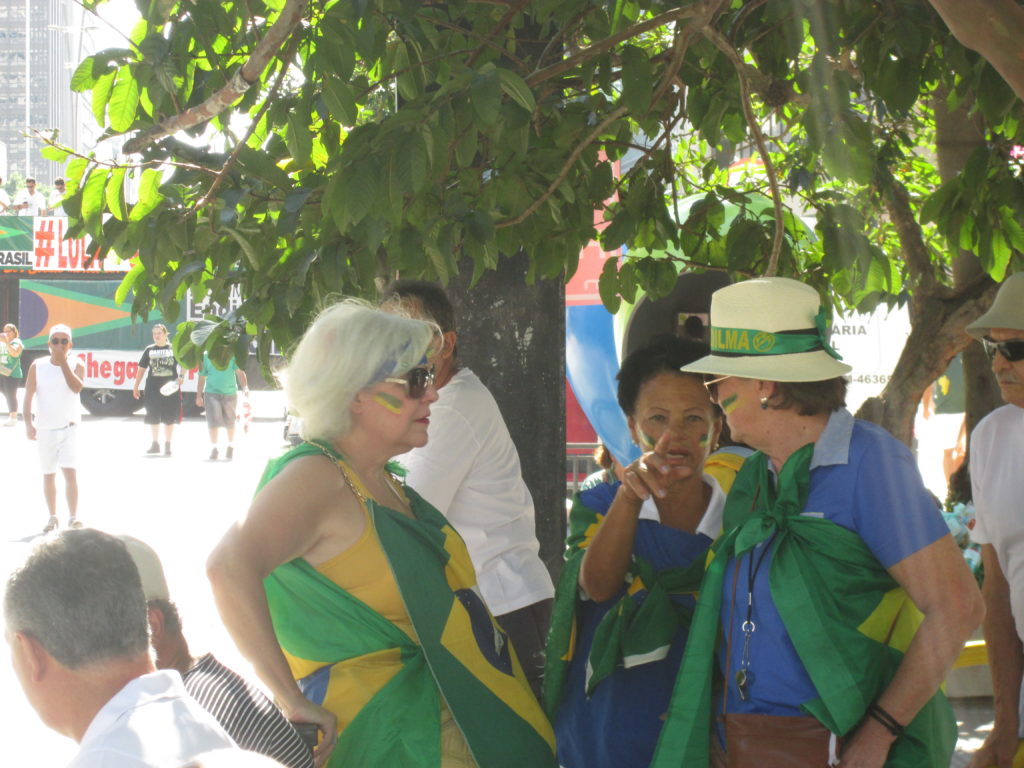
The people have come onto the streets this Sunday afternoon to watch a debate in Congress, which will end with a vote on whether the proposed impeachment should be forwarded to the Senate.
A giant TV screen has been erected outside the FIESP headquarters. The mood is celebratory. These are opponents of the government, and they are confident of the result. Many of them elderly and white, like a Bowls Club outing, sit by the roadside waiting, with flags in their hands and novelty hats on their heads.
Amongst the crowd are a handful of militarists, some in army boots and camouflage trousers, carrying banners calling for an army takeover.
“We want the army to take over but not for ever, of course. An intervention, perhaps for six months,” explains one young man. “We had a military government before [from the 1963 coup to 1985]. It was the army that built the roads, the nuclear power, the hydro-electrics, the airports, everything. Since then, since the eighties, nothing has been done.”
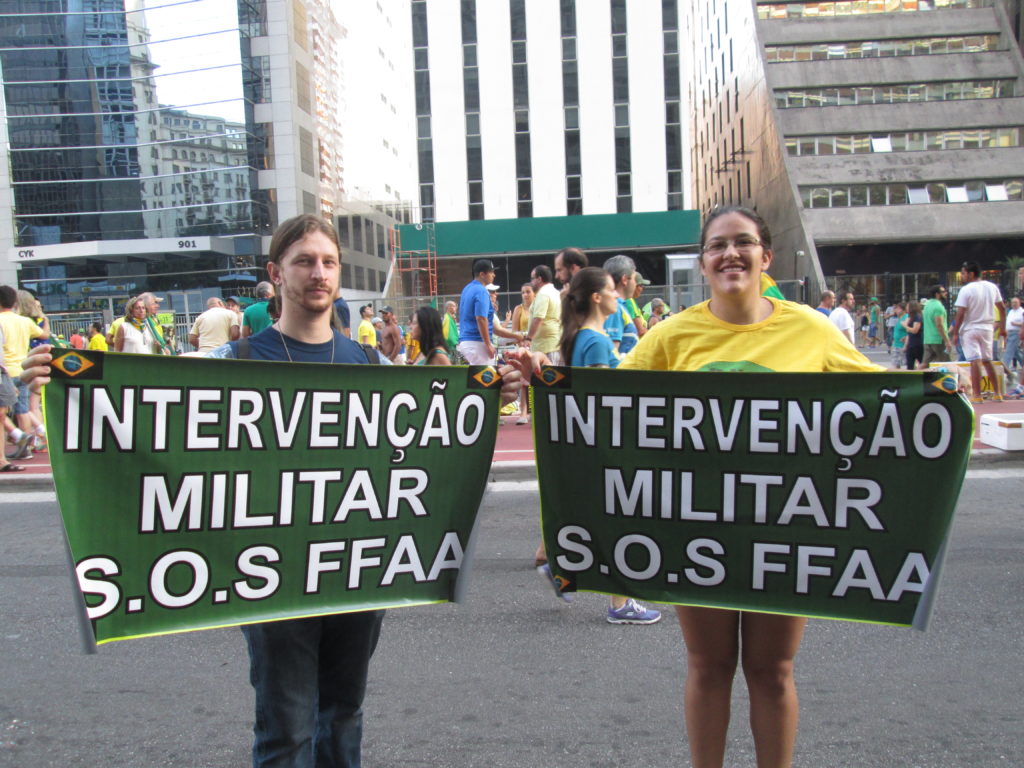
Behind, the militarists had made a red flag marked CUT, which they laid on the floor, trod on and spat on, and then set alight. “Fighting hate with hate” he said.
The CUT or United Worker’s Centre is the main organising body for the Trade Unions, the Syndicates, with close ties to the PT, the Workers’ Party of the current President.
“All these organisations like black women against deforestation, they are paid by the government. The Homeless Workers’ Movement, they complain that they are
homeless, but the government pays them good money to demonstrate in support of the government.”
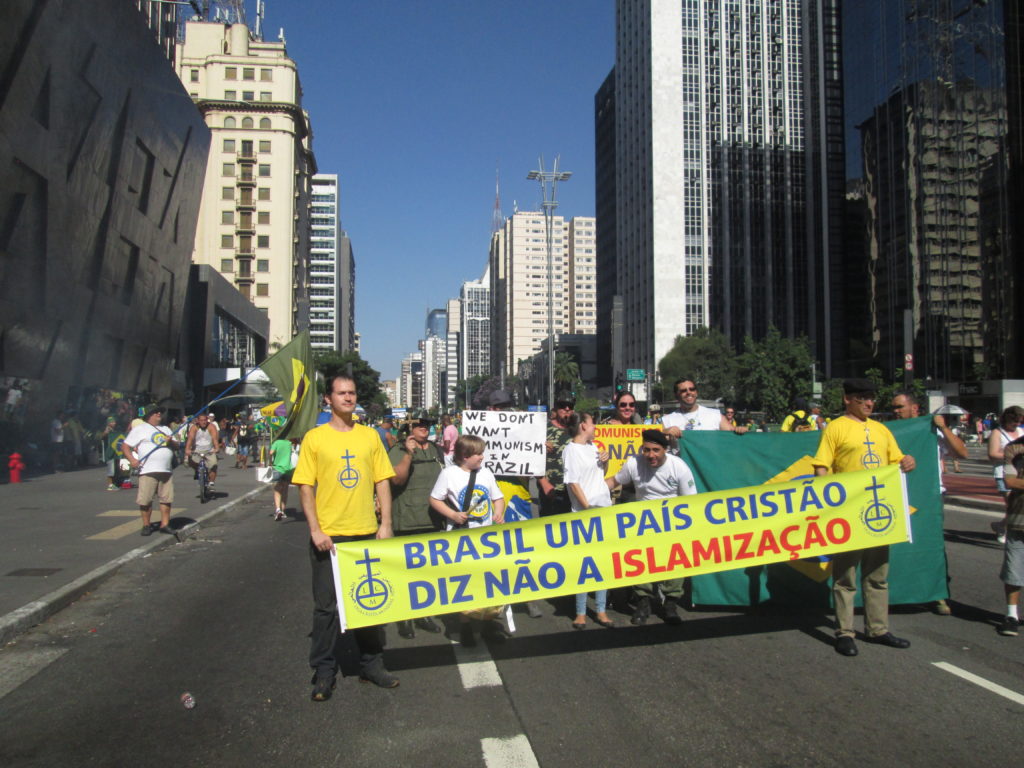
Two kilometres to the North on the Viaduct Do Cha, an iconic Sao Paulo landmark stretching from the Italianate Teatro Municipal to the Sao Paulo City Hall, more than two hundred tents are lined up tidily, with space between for pedestrians to pass.
Banners declare “Camp of Resistance against the coup”, “We’re not going to have a coup, we’re going to fight!”, and “Everybody fight for Democracy – more love less hate”.
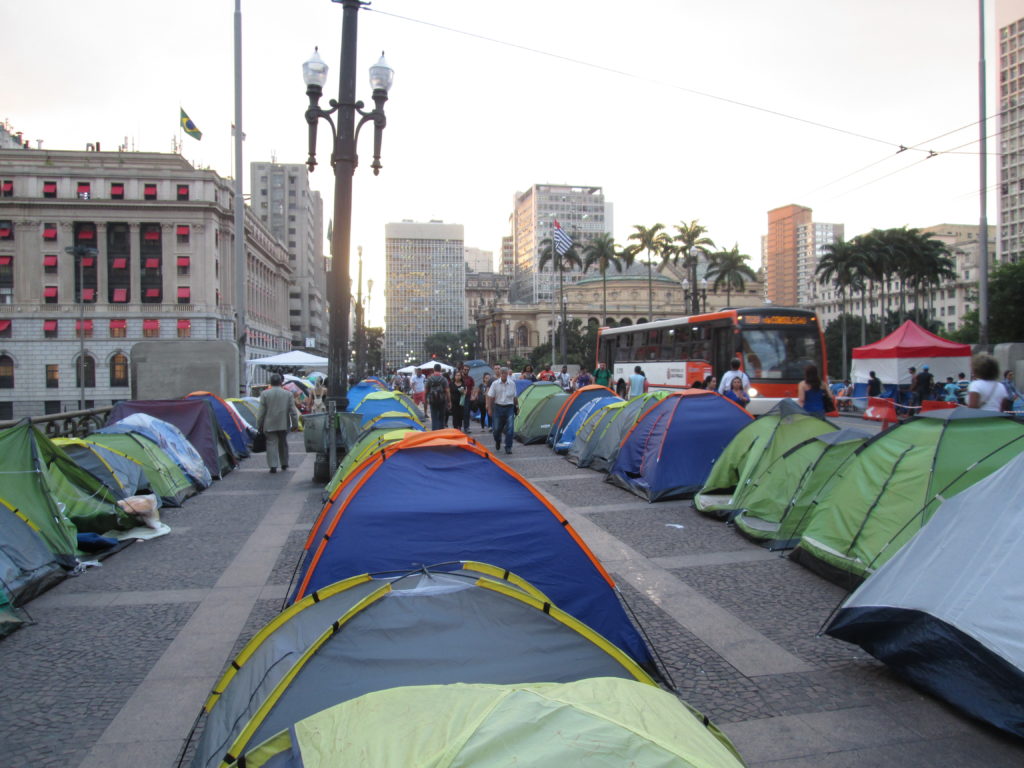
The main banner at one end of the bridge is from the MSTS, the Movement for the Homeless of Sao Paulo, declaring “the real battle is housing policy”.
The four year old movement is one of several homeless organisations which occupy empty buildings in Sao Paulo. It claims there are up to 50 large empty buildings in the centre of the city. The last census estimated the city’s homeless population at 15,000.
Late on Sunday night, the members of Congress voted by a comfortable margin for Dilma Rousseff’s impeachment to proceed to the next stage – a debate in the Senate.
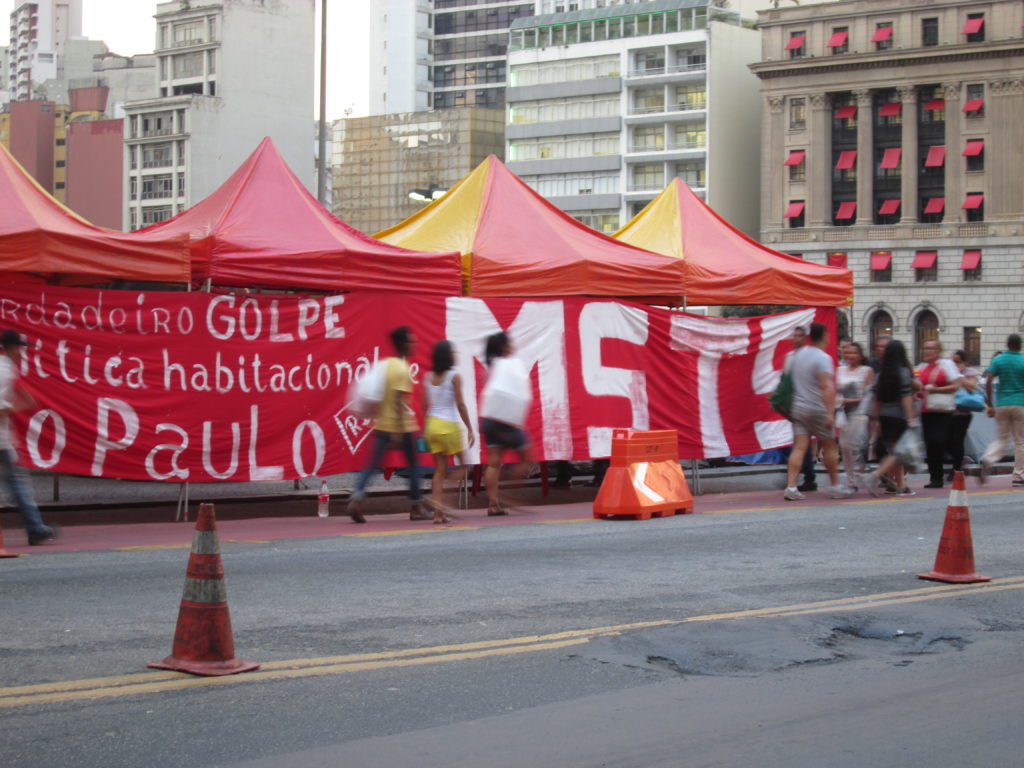
If a majority of the Senate approves, Dilma will be replaced by an acting President for up to six months whilst legal proceedings continue.
There is no evidence, to date, of Dilma’s involvement in the US$5 billion Petrobras corruption scandal which is entering its third year of revelations. However, more than half the members of the Congress that voted “Sim” for Dilma’s impeachment are under investigation for various crimes, according to Transparencia Brasil. The basis for the impeachment is the relatively minor action of using bank loans to spruce up her government economic record prior to the 2014 election.
If the mood on the streets was euphoric, the countless bars where people watched the vote on TV were more sombre. Clearly the people in Brazil want something to change – the economy, the corruption, the hypocrisy – and Dilma is the President and the figurehead. She was elected by secret ballot in the elections 20 months ago, and is now being ousted by a campaign of businesses, politicians and lawyers. Quite where the coming legal process and constitutional manouevrings will lead Brazil and its government, will not become clear for some time.
